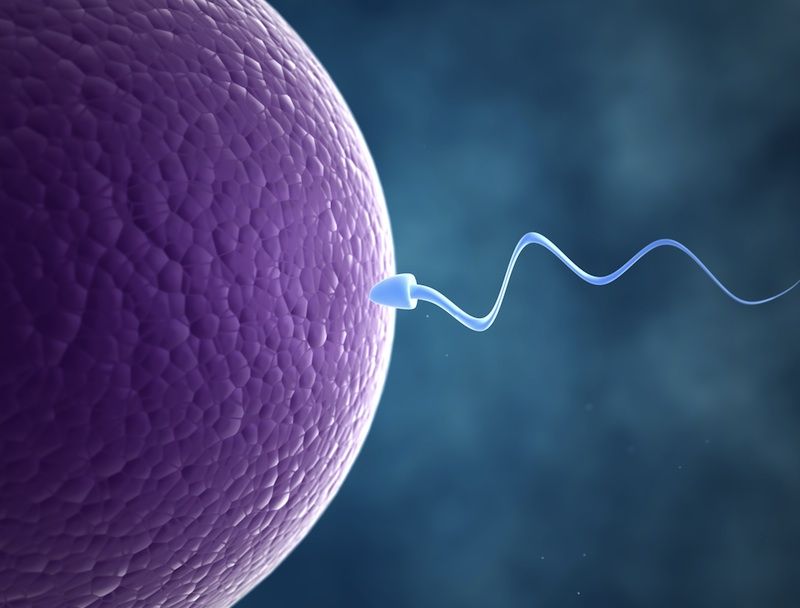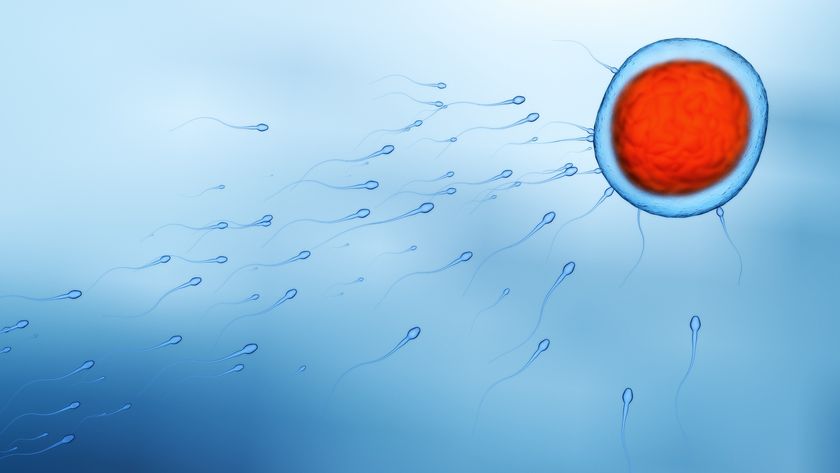Sperm's 'Swimming Pool' May Affect Health of Offspring

An embryo's development depends on more than just the sperm and egg that formed it — it is also impacted by the interaction between male seminal fluid and the environment in the female reproductive tract, a new study shows.
Researchers examined mice that were conceived in a lab from a male whose seminal vessicle gland had been removed, and therefore was not producing seminal fluid. To see the impact of the maternal environment, they also implanted eggs produced normally in females whose mate had its seminal vesicle removed.
The team found that the mice developing from the embryos in the lab scenarios tended to have problems with growth and metabolism.
The finding "shows that the seminal fluid is not just a swimming pool for sperm," said John Eppig, a professor at the Jackson Laboratory in Bar Harbor, Maine, who edited the paper, published online today (Jan. 27) in the journal Proceedings of the National Academy of Sciences. [Sexy Swimmers: 7 Facts About Sperm]
Instead, seminal fluid plays "an essential role in the preservation of sperm function, and in the stimulation of the female reproductive tract," he said.
In the experiment, researchers removed the seminal vesicle, which produces seminal fluid, from male mice and mated them with females, and then compared the offspring with those of mice conceived through traditional means. The researchers also transplanted normal embryos into female mice whose mates had had their seminal vesicles removed, allowing them to see if being in an environment that lacked seminal fluid would have an effect.
The offspring of females whose reproductive tracts did not interact with seminal fluid had a number of health issues — particularly, among males — including obesity, altered metabolism, lower glucose tolerance and hypertension.
Sign up for the Live Science daily newsletter now
Get the world’s most fascinating discoveries delivered straight to your inbox.
"The contribution of the male to conceiving a pregnancy is more than just providing sperm to fertilize the oocyte (egg)," said Sarah Robertson, a professor of reproductive health and pediatrics at the University of Adelaide in Australia and senior author of the study.
"The seminal fluid also provides signals that promote the chances of pregnancy, by conditioning the female to produce growth factors that best support the early embryo," she told LiveScience. Seminal fluid may also play a role in the transmission of obesity from one generation to the next, particularly from fathers to sons, she said.
It's unclear whether the mouse study has implications for humans, the researchers said. However, Robertson said future research should look at the effect of seminal fluid in the human female reproductive system, although less of it reaches the higher parts of the female reproductive system than in mice.
Still, the study indicates that conditions at conception may play a more important role in the future health of offspring than previously thought.
"When we consider reproductive health in men, we have to think not just about the sperm, but about the whole system by which seminal fluid is produced," Robertson said.
Follow Joe Brownstein @joebrownstein. Follow LiveScience @livescience, Facebook & Google+. Original article on LiveScience.












